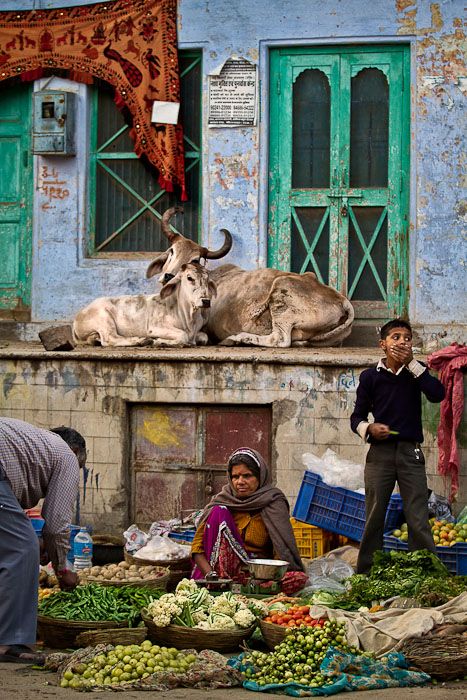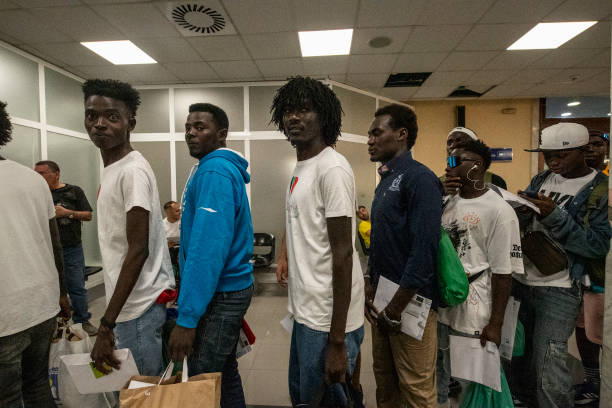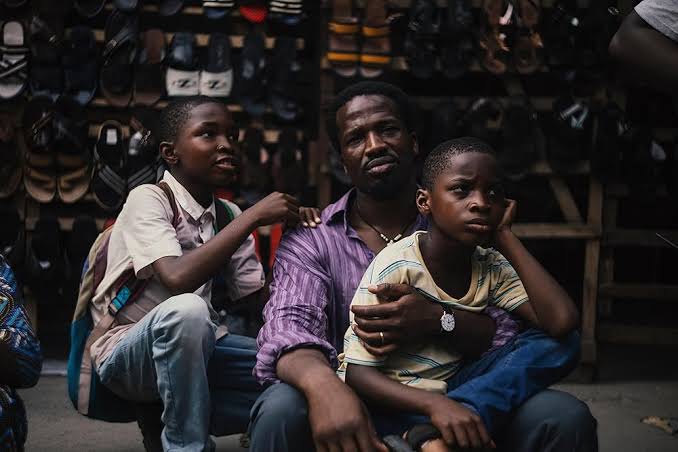Filmmaker Lanre' Obisesan Discusses Cinema's Impact in Global Voices Interview

Lanre’ Obisesan, a Nigerian-American writer, producer, and filmmaker, has embarked on a compelling journey from a career in pharmacy to the world of cinema. Driven by a belief in film as a potent medium for reflection, emotional healing, and affirming shared humanity, Obisesan crafts quiet yet emotionally resonant stories. His work delves into themes of identity, resilience, and the intricate emotional intersections between cultures, marking him as a significant voice in contemporary filmmaking.
Obisesan's path to storytelling began long before his medical career. He grew up surrounded by griots and influenced by his father's storytelling instincts and a Super 8mm projector showcasing diverse films. His childhood was filled with writing nursery rhymes and performing songs, eventually leading him to become a musician in Nigeria. Even during his years as a Doctor of Pharmacy, his deep listening skills and observation of patients' unspoken narratives honed his understanding of human stories. This innate pull towards narrative eventually led him to filmmaking, a path he felt was essential to living truthfully and offering something back to the world.
His cinematic education was initially self-driven, involving obsessive watching of films by masters like Djibril Diop Mambety, Tunde Kelani, Ousmane Sembène, Andrea Arnold, Ryan Coogler, and Abbas Kiarostami. Later, he pursued formal training to refine his craft. His influences also include filmmakers like Spike Lee, noted for social commentary, and Ava DuVernay, celebrated for her powerful directorial vision. These inspirations, combined with his personal experiences and cultural background, shape his unique cinematic style.
The transition from healthcare to filmmaking was fueled by a desire to address healing in a broader sense. Obisesan recognized that true ailments, especially in underserved communities, are often emotional, psychological, and spiritual. Film became his chosen medium to process and articulate the unspoken pain he witnessed in both Nigeria and the United States. Producing came naturally, aligning with his inherent abilities as an organizer and builder.
Obisesan’s debut feature film, “Dokita Musa,” is a poignant coming-of-age drama set in a rural Yoruba village. It tells the story of an 11-year-old boy who stammers but harbors the dream of becoming a cardiologist. The film is described by Obisesan as an honest love letter to Nigeria, one that doesn’t shy away from depicting pain or poverty but also holds space for beauty, humanity, and the quiet power of dreaming. It explores the layered lives of its characters, including a struggling father, a grieving mother, and a disillusioned professor, against a backdrop of economic hardship.
“Dokita Musa” delves into themes of resilience in the face of quiet hopelessness, exploring the silences between people and the fragile hope in difficult circumstances. The choice to center the story on a boy with a speech disorder was deliberate. Obisesan has always been drawn to the quiet brilliance of overlooked children, those whose talents are not immediately visible. This character was also informed by his knowledge of a parent of a child with palilalia and mild autism, witnessing firsthand the associated challenges and resilience. The protagonist’s struggle to be heard reflects the experience of many communities: full of life yet often misunderstood or spoken over.
Producing “Dokita Musa” independently came with significant challenges. Made with deep love but very limited resources, Obisesan faced hurdles in raising funds and assembling a crew in a remote Nigerian village lacking major infrastructure. Building trust with the local community was paramount. The emotional weight of the film, dealing with grief, poverty, and crushed dreams, and directing non-actors who understood these truths deeply, required immense care and sensitivity. Post-production and festival submissions were also uphill battles without institutional support or big-name backing, overcome by conviction and community support.
Navigating the broader film industry as an independent filmmaker also presents systemic challenges, including securing funding through avenues like grants and crowdfunding, overcoming distribution complexities to reach wider audiences, and maintaining creative control amidst budget constraints and investor feedback. Obisesan’s journey reflects these realities, drawing strength from his heritage and unwavering spirit.
With “Dokita Musa,” Obisesan aims to invite audiences into a world that feels unfamiliar yet deeply human. He hopes international viewers will challenge their assumptions about African life and expand their emotional understanding. For Nigerian and African audiences, he intends the film to be a form of recognition, a mirror held with care and clarity. The film, which had its world premiere at Dances With Films in Hollywood, connected with audiences through its stillness and emotional honesty, affirming Obisesan's goal of creating stories that spark questions, empathy, and continued conversation.
Lanre’ Obisesan envisions a future where diversity in the film industry is the norm, and narratives from African and other global communities are more widely celebrated. He aims to inspire a new generation of filmmakers and is considering mentorship programs, collaborative international projects, and social impact initiatives. His ultimate goal is to utilize the power of storytelling to create a lasting positive impact, bringing the unique voices of Nigeria and the diaspora to a global audience and celebrating the richness of human experience.
You may also like...
In the Shadows of the Signal: How Africa is Fighting a War It Cannot See

The article discusses the growing threat of cyberattacks in Africa, likening it to a "quiet war" being waged through dig...
Beyond Fintech, A Continent on the Rise

Africa's tech landscape is rapidly diversifying beyond fintech. Discover how innovation in sectors like AI, health tech,...
Should Religion Still Dictate Morality in a Secular Age?

This bold essay unpacks the complex relationship between faith, law, and public life—exploring where religion uplifts mo...
Africa’s AI Moment: Are We Innovating or Just Consuming?

As AI reshapes Africa’s digital landscape, the continent stands at a crossroads: Will it lead innovation or remain a tes...
The Rise of AfroAnimation: How African Studios Are Telling Our Stories With Global Appeal
(26).jpeg)
African animation is breaking boundaries as studios across the continent craft vibrant, culturally-rooted stories with g...
Digital Dakar: Why Senegal Is Africa’s Next Fintech Capital

Senegal’s capital, Dakar, is emerging as Africa’s next fintech powerhouse, driven by mobile money innovations, a youthfu...
The Global South Doesn’t Need a Savior: It Needs Equity

This incisive essay dismantles the outdated saviour complex, calling for a bold shift from patronising charity to genuin...
The Strangers Next Door: A New Dilemma at Africa’s Threshold

The article discusses the deportation of African nationals by the United States to eSwatini, a small southern African ki...
(16).jpeg)

